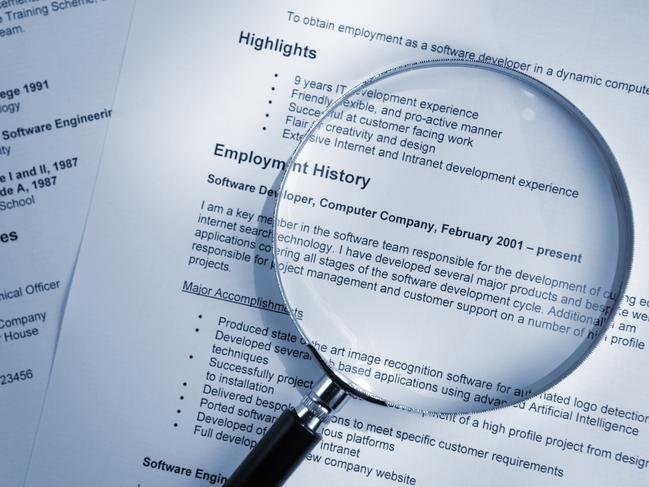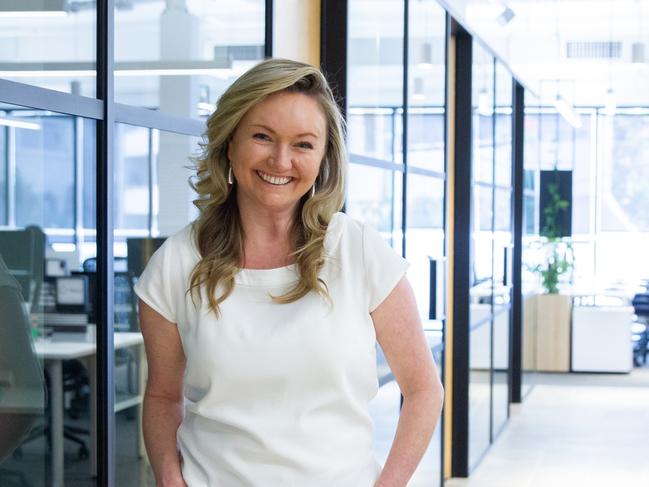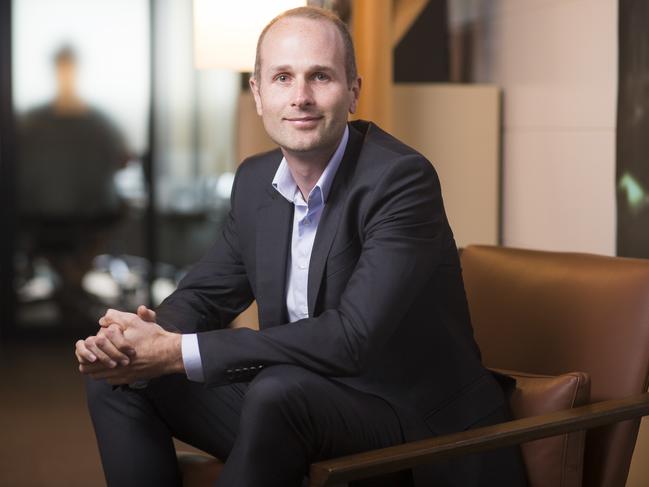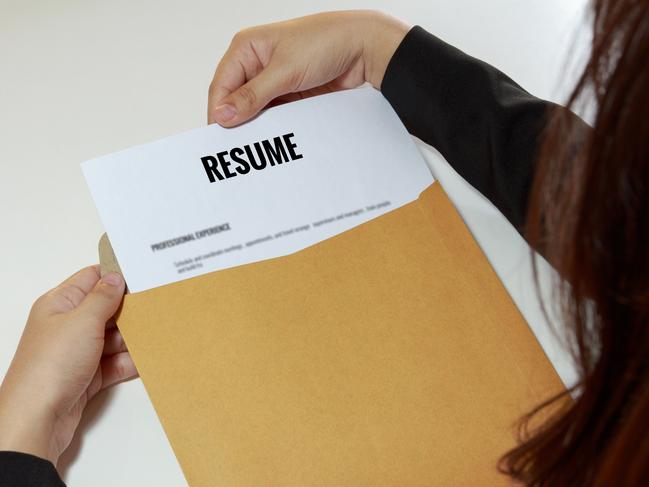New year, new career: Here’s how you increase your chances of landing a new job
With one in three Australians looking for a new job in 2020, many will be in for a shock. Application processes are changing. This is how it affects you.
Careers
Don't miss out on the headlines from Careers. Followed categories will be added to My News.
About one in three Australians plan to look for a new job in 2020 but those who have been off the market for a while could be in for a shock.
Jobseekers must now create resumes that appeal to both humans and computers, get comfortable being interviewed by recorded video clips, learn to highlight both technical and soft skills, and demonstrate real abilities through task-based assessment rather than relying on charisma in their job interview.

Those planning a career change into a whole new field must keep an eye on growing industries and avoid shrinking industries while also being open to emerging roles created in response to social and technological trends – everything is changing much faster.

A survey of 1000 office employees by recruiter Robert Half revealed 31 per cent would be looking for a new job with a new employer in the new year.
It was more common among men (34 per cent) than women (28 per cent) as well as among respondents aged 18 to 34 (42 per cent) than those 35 to54 (30 per cent) or 55-plus (14 per cent).
SO, WHAT ARE THE LATEST TIPS FOR LANDING A JOB IN 2020?
GET INTERVIEW- AND CAMERA-READY
Jane Bianchini, founder and chief executive of digital recruitment platform Alcami Interactive, said video interviewing had been around for about eight years but really hit the mainstream in the past eight months.
“Video interviewing is more common when there is a lot of competition for a small number of jobs and also for organisations who have to recruit around the world,” she said.
“(But recently, companies) have seen the practicality and are applying it to other roles in the industry.
“I can see in the future they will be adopting this ‘whole of business’.”

Video interviews do not replace face-to-face interviews but rather give employers extra information about a candidate before they reach that stage.
Typically, a jobseeker will be given questions on the screen – in text or via prerecorded video – then have a short time to think about their answer, followed by between 30 seconds and 3 minutes to record their answer via webcam.
Ms Bianchini’s top tips for a successful digital interview:
• Have a great internet connection and professional background
“Test your webcam and microphone, and make sure you don’t have your washing hanging up behind you,” she said.
• Use up the whole time
A more in-depth question will allow a longer response time.
“If you are given three minutes to talk, speak for three minutes,” she said.
• Don’t be afraid to ask for special considerations
“For candidates with neurodiverse needs – from being on the autism spectrum to having clinical anxiety to Tourette’s – call it out early on and say you may need longer in your answer time or you may need the deadline extended,” she said.
“They just want to capture your response to get to know you.”

DO NOT UNDERESTIMATE SOFT SKILLS
Stop removing “irrelevant” experience from your CV.
That was the advice of Aurecon chief people officer Liam Hayes who said graduates in particular could demonstrate soft skills by listing experience that might initially seem unrelated to the role on offer.
“Volunteering work or roles in student clubs help build competencies that are transferable into the working environment,” he said.
“To us, they are important.”
Mr Hayes said non-technical skills were so valued by the engineering and advisory company that they introduced case study assessments to their graduate hiring process to test for skills such as innovation, creativity, negotiation, communication and team work.
This year, the applicants were placed in groups of about five and given about an hour to develop a plan to revitalise Melbourne’s Marvel Stadium.
It simultaneously tested the applicants while also giving them a taste of the work they could expect with the company.
“It’s an approach we implemented a couple of years ago and we have seen value in it so rolled it out across the Australia and New Zealand,” Mr Hayes said.
“The feedback has been positive. It gives people a chance to showcase their strengths which you don’t always get to do through a CV.”

Mr Hayes’ advice for a case study assessment:
• Focus on natural strengths
“Some people might be more of a leader, able to work through how they will approach the problem; someone else might be stronger at project managing; someone else might be stronger in terms of creativity and challenging the team to think beyond how they (would usually) approach the problem; or someone might be strong at design and articulating what the end solution to the problem looks like,” he said.
“You can’t just have a team all good at innovation.”
• You don’t need to be the loudest person in the room
“Trying to stand out in those assessments can be challenging because you are one of many,” he said.
“Our hiring managers and assessors are aware of (what we are looking for in workers) and it’s not necessarily the loudest voice that we should be hiring.”
• Don’t over-think it
“Accept the fact you have made it that far … it’s about what you would bring to the organisation if you are successful,” he said.
Aurecon will hire 162 graduates across Australia and New Zealand after applications open in February.
It will be their largest intake in a decade.

CHOOSE GROWING AND EMERGING JOBS
The Australian Government’s 2019 Industry Employment Projections Report predicted the highest volumes of job growth between 2019 and 2024 within healthcare and social assistance (252,600 more jobs), professional, scientific and technical services, ranging from engineering to legal to IT (172,400 jobs) and education and training (129,300 jobs).
On the flip side, it forecasted shrinking workforces for agriculture, forestry and fishing (3800 fewer jobs) and manufacturing (3400 fewer jobs).
MORE NEWS
Humour key to boosting gender diversity
Coal mine back operating three weeks after death
But in all industries, there would be demand for people with specific, high-value skills.
The latest Hays Jobs Report revealed hot spots ranging from formwork carpenters, concreters and advanced riggers in the trades sector through to management accountants and financial analysts in the public sector.
Meanwhile, LinkedIn’s 2020 Emerging Jobs Report Australia revealed the fastest-growing jobs in the country were:
1. Artificial intelligence specialist
2. Cybersecurity specialists
3. Marketing automation specialist
4. Robotics engineer (software)
5. Site reliability engineer
6. Customer success specialist
7. Data scientist
8. Data engineer
9. Growth manager
10. Chief strategy officer
11. Anti-money laundering specialist
12. Product owner
13. Service designer
14. Full stack engineer
15. Automation consultant
MAKE YOUR CV SOFTWARE-FRIENDLY
Many organisations filter their initial pile of job applications using an applicant tracking system – software which scans CVs for keywords and phrases to shortlist only relevant documents.
This means jobseekers must impress the machines before they even get in front of human eyes.

Outplacement Australia founding director Gillian Kelly said the key was to optimise your content to show that you match their criteria.
“Make sure your content includes the keywords and hard skills identified in the advertisement,” she said.
“You can do this manually with just the job advertisement and a highlighter, or if you want to make sure you are hitting the right words, there are now new job seeker technologies on the market that can assist with this for a small fee.”
CVs should also be formatted to ensure all information can be read and processed.
“Never put important information in headers, footers, text boxes or graphics,” Ms Kelly said.
“These may drop out in many hiring systems and may cause your data to disappear from the hirer’s system.”
READ MORE EMPLOYMENT NEWS IN THE CAREERS SECTION OF SATURDAY’S THE COURIER-MAIL, THE HERALD SUN, THE ADVERTISER AND THE DAILY TELEGRAPH.
